When it comes to managing human resources, sometimes difficult decisions must be made, such as terminating a consultancy contract. Whether it's due to changing organizational needs or performance considerations, it's crucial to approach the situation with clarity and professionalism. In this article, we'll explore key steps to ensure a smooth contract termination process, keeping communication open and clear. Ready to navigate this challenging task? Let's dive in!

Clear Identification of Parties
The termination of a consultancy contract often requires clear identification of the parties involved to avoid any legal ambiguity. In this context, Party A could be referred to as the "Consultant," where specific details such as the individual's name (e.g., John Smith), the business entity (e.g., Smith HR Consultancy LLC), and relevant identification numbers like the Tax Identification Number (TIN) are included. Party B, the "Client," should also be distinctly identified, including the company name (e.g., GreenTech Innovations Inc.), physical address located at (e.g., 123 Green Ave., Seattle, WA), and applicable registration numbers. Each party must acknowledge their role, ensuring all parties understand their obligations and rights related to the contract termination, thus minimizing any potential disputes in the future.
Specific Termination Date
The termination of a human resources consultancy contract typically involves clear communication regarding the specific termination date, ensuring that both parties understand their obligations leading up to the conclusion of the agreement. Contracts might be detailed with explicit clauses about notice periods, final deliverables, and the handover of relevant documentation or ongoing projects. In cases involving ongoing engagements, professional roles such as project managers or recruitment consultants may require a transition period to facilitate a smooth conclusion of services. Furthermore, compliance with local labor laws and agreed-upon compensation for work completed until the termination date is essential for maintaining professional integrity and avoiding disputes post-termination.
Reason for Termination
Termination of an HR consultancy contract may arise due to various reasons. Common issues include persistent communication breakdowns between the consultant and the organization (measured by response times exceeding three business days), inadequate performance metrics (failing to meet targets outlined in the Service Level Agreement), or non-compliance with regulatory guidelines (violations of labor laws specific to local jurisdictions, such as the Fair Labor Standards Act in the United States). Additional factors may involve changes in organizational strategy (shifts in corporate direction or restructuring initiatives that require different skill sets), budget constraints (resulting in the need for cost-cutting measures that impact external consultancy), or mutual agreement (when both parties recognize that the consultancy's services are no longer aligned with organizational needs). Each of these factors can significantly influence the decision to terminate a consultancy relationship.
Return of Company Property
When a consultancy agreement with an HR (Human Resources) firm comes to an end, it is essential to address the return of company property, such as laptops, access cards, documents, and any proprietary materials that belong to the organization. The termination process may involve a formal notification stating the completion date and detailing specific items needing to be returned. For example, company laptops must be logged with their serial numbers, and access cards should be deactivated. Additionally, any physical assets should be listed, including office supplies or promotional materials carried by consultants. Effective communication about these procedures ensures a smooth transition and adherence to company policies regarding asset management. Proper documentation of returned items can protect against potential disputes in the future, ensuring accountability and transparency.
Confidentiality Agreements
Termination of a consultancy contract often involves legal implications, particularly concerning confidentiality agreements. Companies must ensure that any sensitive information shared during the consultancy period remains protected after termination. For instance, information related to proprietary business processes, trade secrets, or client lists is crucial to safeguard against competitive threats. The contract may stipulate that the consultant must refrain from disclosing any confidential material for a specified duration, commonly ranging from one to five years. Furthermore, the region-specific laws, like California's Confidentiality of Medical Information Act, may influence the terms outlined in the agreement. Ensuring clear communication and mutual understanding in terminating contracts helps mitigate legal risks and protect both parties' interests.
Letter Template For Hr Consultancy Contract Termination Samples
Letter template of HR consultancy contract termination for early cancellation.
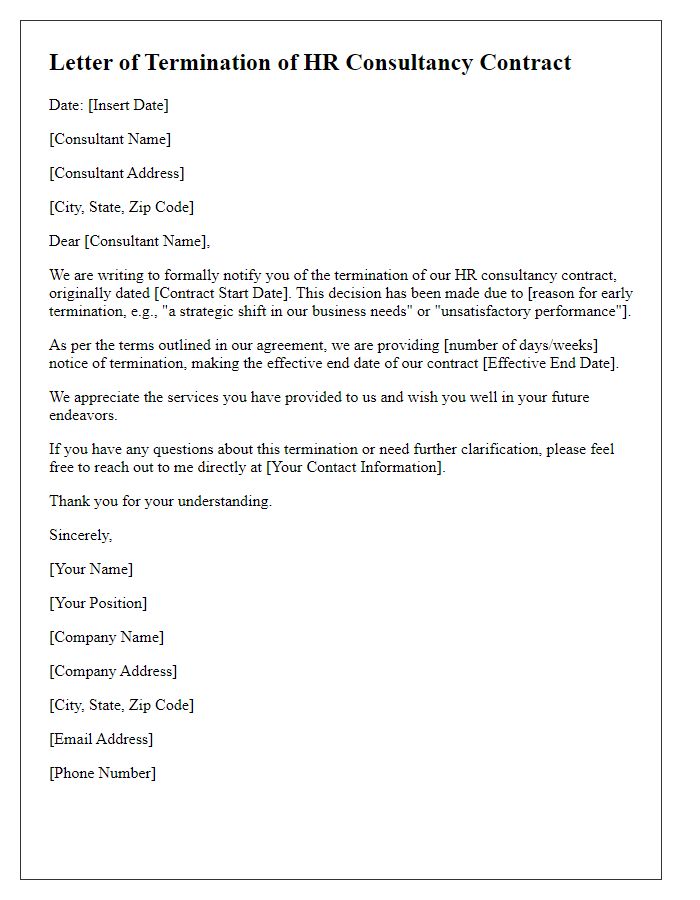
Letter template of HR consultancy contract termination due to performance issues.
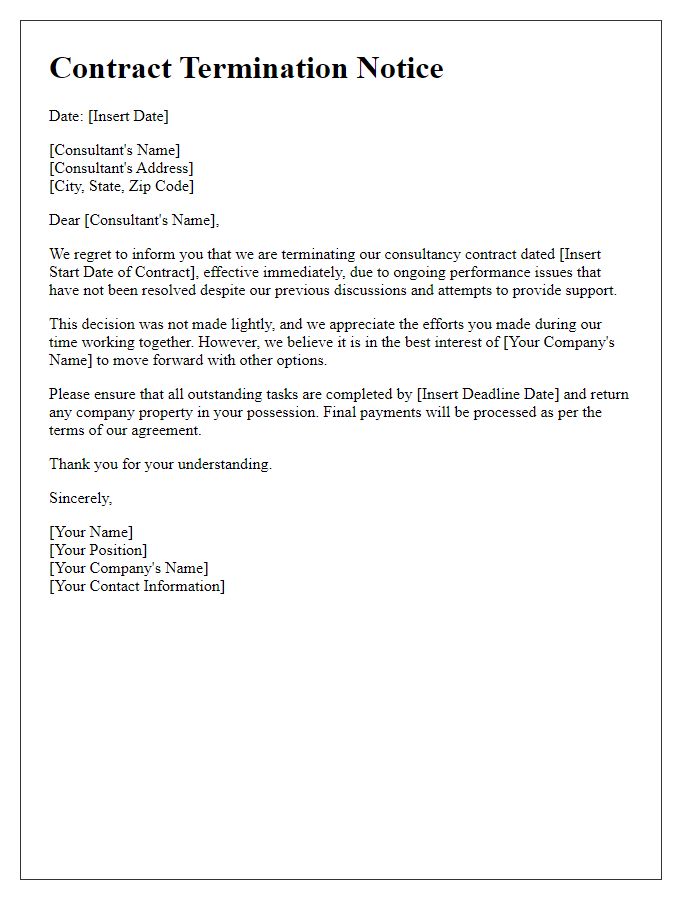
Letter template of HR consultancy contract termination upon mutual agreement.
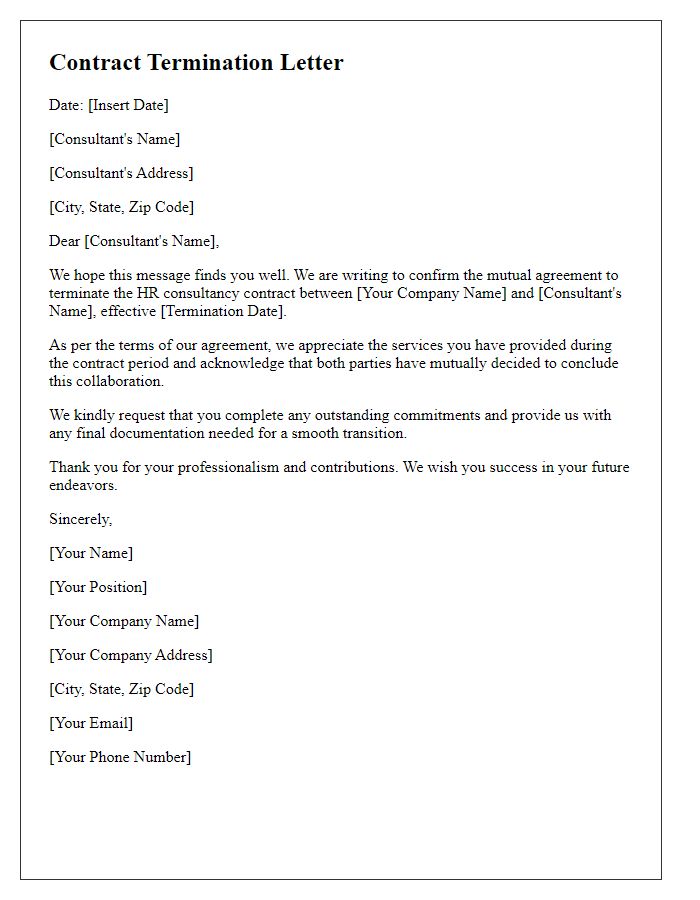
Letter template of HR consultancy contract termination for non-compliance.
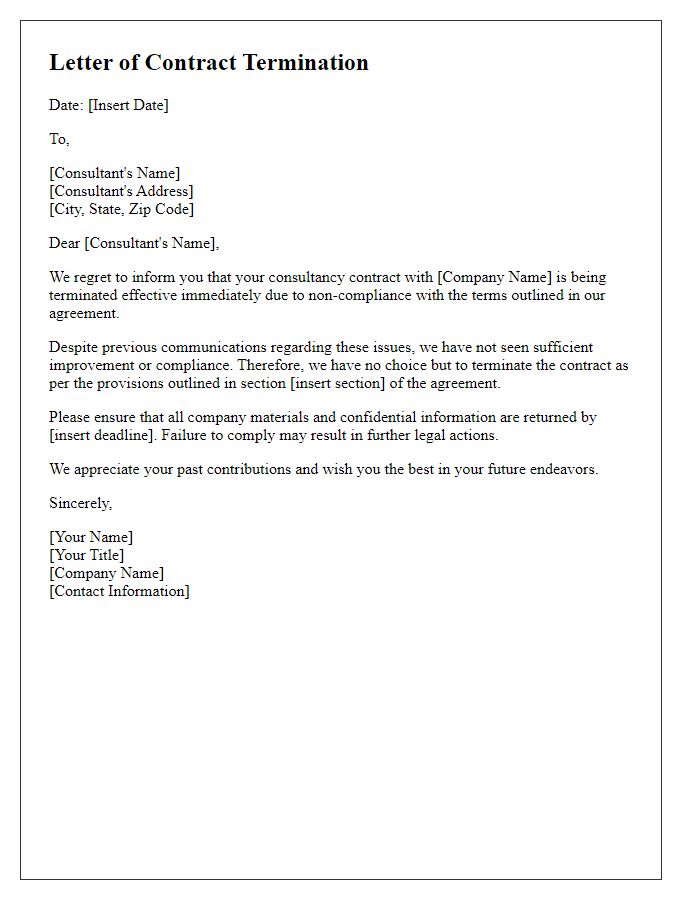
Letter template of HR consultancy contract termination for breach of contract.
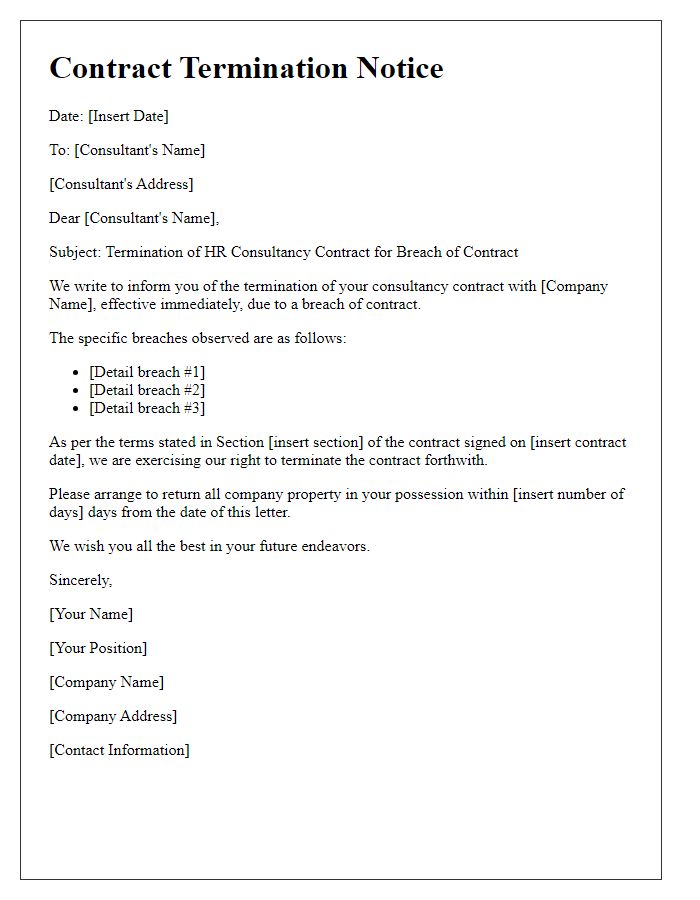
Letter template of HR consultancy contract termination for project completion.
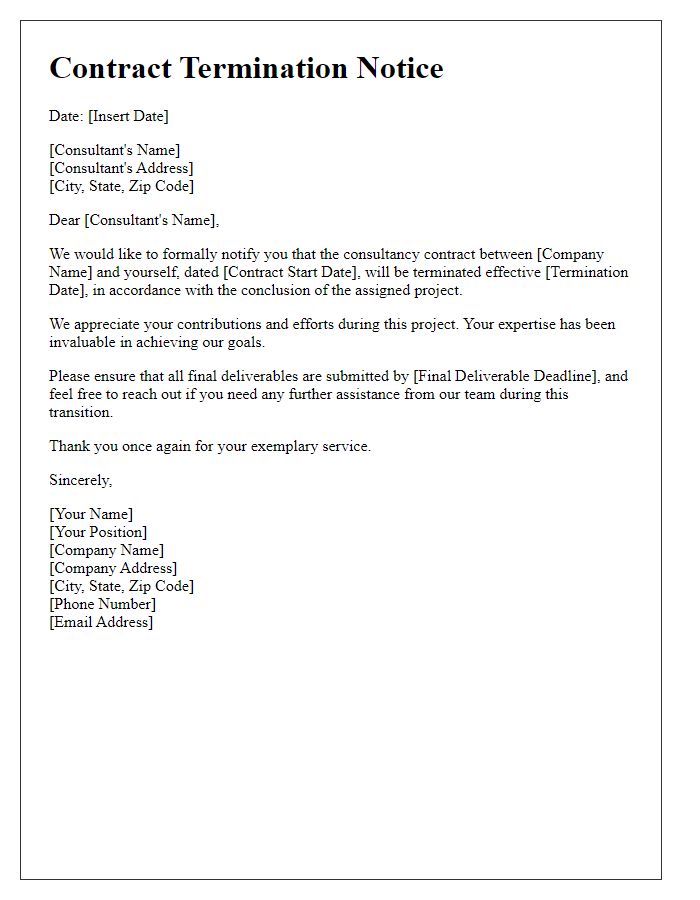
Letter template of HR consultancy contract termination due to budget constraints.
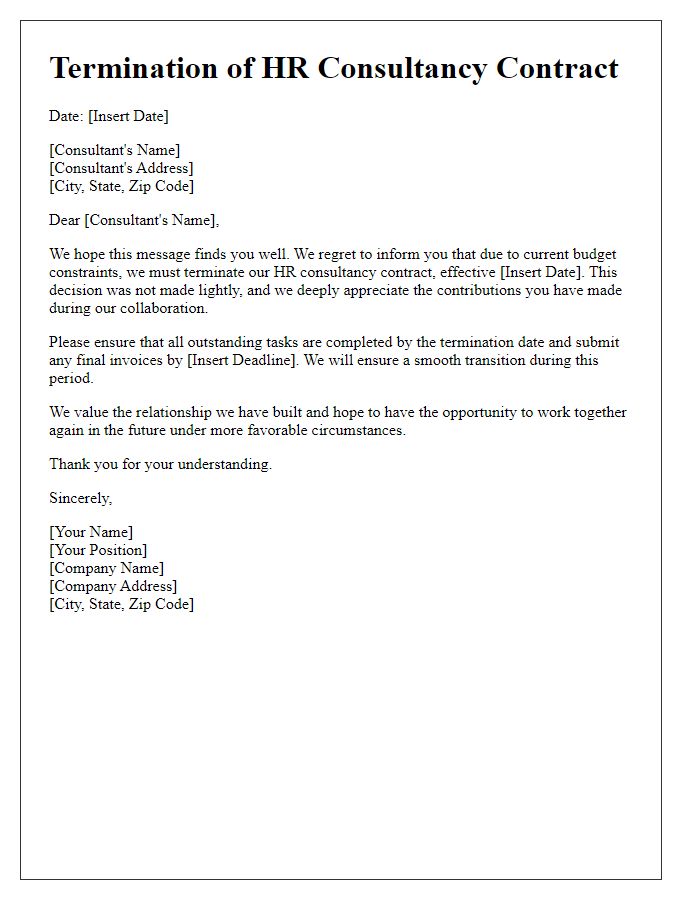
Letter template of HR consultancy contract termination after service evaluation.
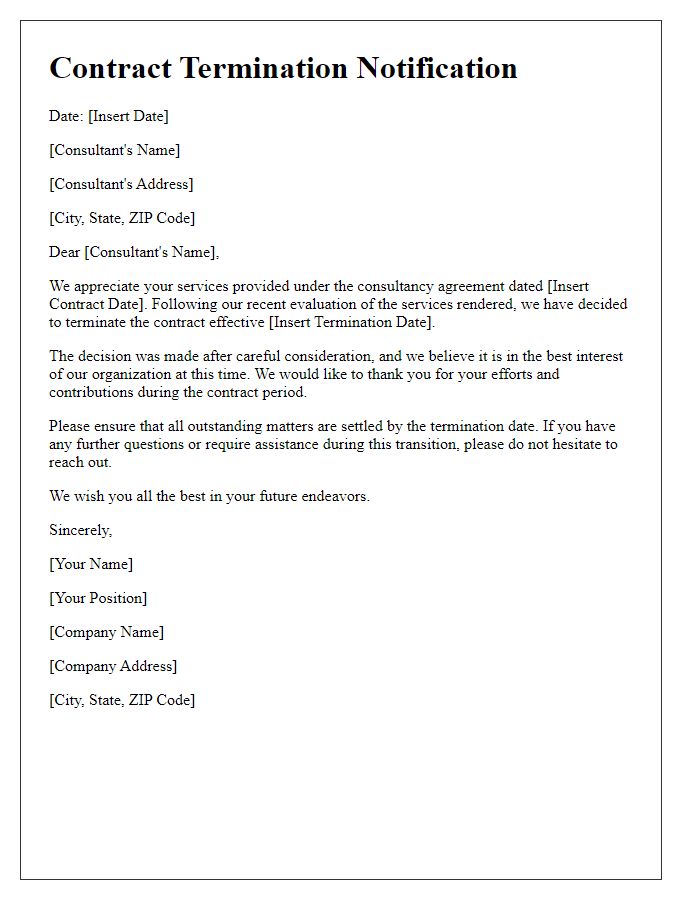

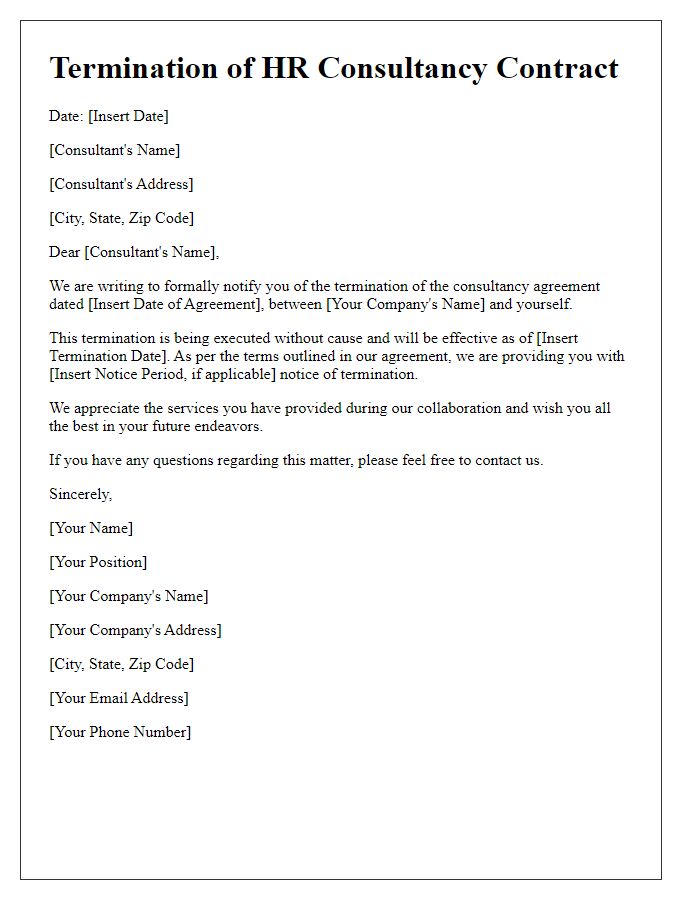
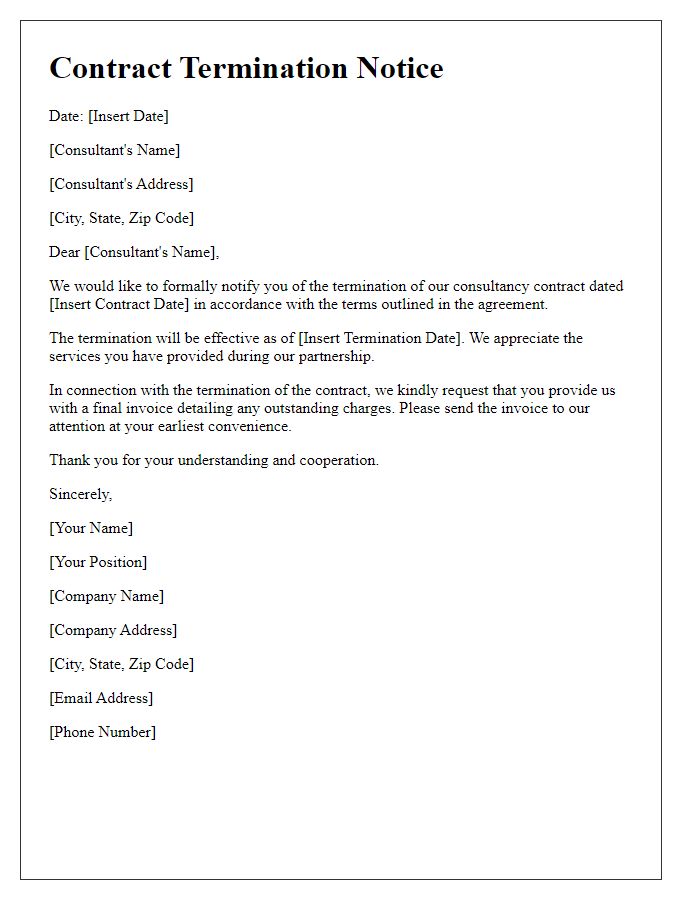


Comments